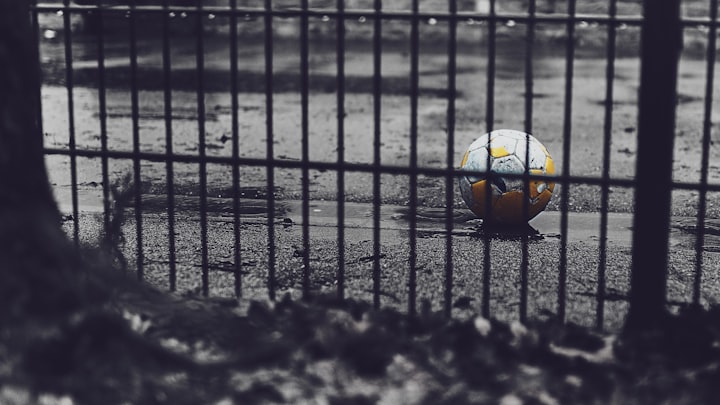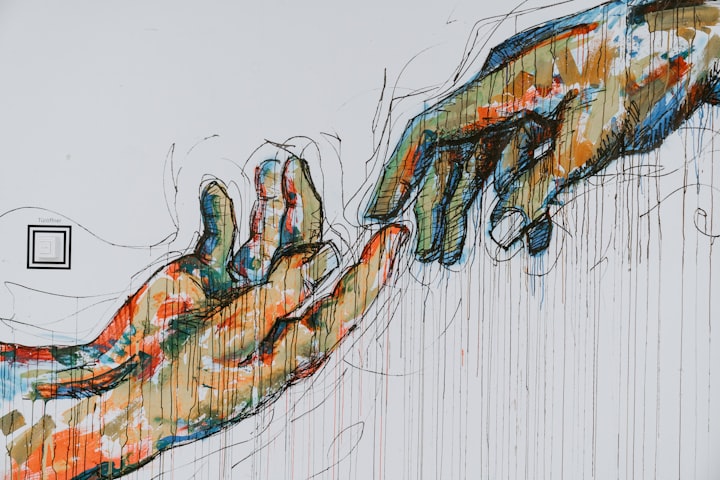LONDON SHARK: CHAPTER FIVE
With vengeance in mind, the young shark triangulates his target . . .

Prologue and ensuing chapters HERE
C h a p t e r F i v e
He leaves his house before his parents complete their usual morning transmissions; the groans and yawns, the squealing mattress; the transition to the scrabbling for and shaking of matchboxes or lighters, the ensuing thick scratch of match against matchbox, or the triple-thumbing of a lighter wheel.
The door slams, and his parents wail towards his bedroom: wake up. By the time they realise he has gone, he has left not only the house but also their conscience for the day. They are busy, they have work to get to and endure, and they have arguments to start, dowse and rekindle before the day is out.
He walks along the curved pavements of his estate on his journey to school in shoes which are still wet from yesterday’s snow and ice; while under this dampness, they are water-stained by the slush, ice, and snow of the previous week.
By the time he has trudged and slipped his way on the approach to the Great North Road his shoes are soaked through, his black socks of differing shades and lengths, only one of which has been washed since its previous excursion. Both are riddled with holes, while the numb toes they don’t fully cover are long in the nail, some tipped with fungus. Cars trundle past, wheels spitting stained slush. Although Richard, his neighbour, has gotten his Sierra started and vacated the kerbside, many other men and women are still choking their cars into life. Small groups of his schoolmates fill the stark air with their chatter and shrieks. They hurl snowballs of wildly contrasting cleanliness, density, and danger—some have been formed from the whitest, most recent snow that lines the walls and hedges, and strike their targets’ midriffs with a soft thump; some are filled with brown slush and icy shards, and cause real pain. He thinks back to yesterday, to Leia. To the pain, she suffered at the hand of Adam Andrews, whose house is only a few minutes of trudging away. His schoolmates pass him by, none of whom appear to notice his solitary approach to the town.
Adam Andrews’s window is still ajar. Like yesterday, music spills from it. Another Christmas song. Shakin’ Stevens, Merry Christmas Everyone. He shortens his step as he approaches no 175. Stills himself entirely as he draws level with the front door. He sniffs the air, and he listens. From the inside, the house sounds much like his; heavy footfalls, heavier shouts. Everything within its walls wakes with a blunt headache. But unlike his home, the music continues to tumble down, and despite a molecular-level hatred of the Andrews boy, a smile comes to his lips. He likes Christmas. Has memories of him and his parents watching Christmas tv, each settled on the sofa, topped with their own paper crown. Before any resident Andrews notices the diminutive schoolboy loitering outside their front door, he picks up his step, lets his sodden shoes walk him to school. Looks over to the spot where Leia’s hand was torn apart as he goes. Knows that he will see Leia soon; so very soon. That he will take flowers.
He enters the school gates, walks across the communal ground to the little closer to the various groups than he usually would. Today he has an interest in what they may whisper and intone to each other: a small town like this thrives on a constant flow of gossip, even that as deep and slow and full of shit as its river. But the talk is the usual drear; football, Top of the Pop, Christmas wants. He pushes inside the school via its heavy double doors, slips past a trio of teachers standing sternly at the edge of where the entrance corridor diverts left, past the assembly hall. He has stopped listening but overhears the word hand. This slows him. Blood, stitches, could have been blinded. Police. His heart rattles. They must be talking about Leia. He slows his step again, until he realises they’ve stopped talking. Feels their eyes on his back. Walks on, knowing that while they think he’s just a trouble-hungry eavesdropper, he must not embroil himself with the U nail saga in any way. He continues to his form room, not turning back. The voices pick up again. Gossip, he thinks. It’s a killer.
On a Friday his first lesson is humanities: here, history and geography meet, much to the chagrin of young secondary school teachers who rarely have an equal interest in both studies. He sits next to Dean Paxton, an energetic, long-auburn-hair-with-centre-parting scamp who spends the lesson whispering to him, to the others sat either side of them. In this lesson, they sit in a passenger jet-style formation: four across in the middle of the room, with their classmates sitting in pairs to each side. Eight girls in the first row, then eight boys. Repeat. He and Dean are in the first row of boys, and Dean is as keen to intrude upon the education of the quartet of girls sitting in front of them as he is to the young shark. Dean’s lifeforce burns so brightly it lifts even the young shark from the dark depths, equips him with a genuine smile. The teacher ignores Dean’s horseplay; she was brought to the school to give fifth-years their final hurrah in history; not to teach eleven-year-olds the basics of geopolitics.
Dean’s attention is not solely accepted by him as a rare bright spark in his life: Dean knows Adam Andrews. Despite the centuries that lay between being in your first year at Big School and your third, young Dean is of a disposition that allows him to occasionally join Adam Andrews and company down at the abandoned buildings of the town, and this is a path the young shark will if not follow, then stalk, from the shadows. Before he spills Adam Andrews’s blood, he will smell it out first. Away from the sanctity of 175 Great North Road, Andrews is the kind to move in groups made up with those of similar build; whether this is in age or in Dean Paxton’s case, pubescent rogue spirit. And Dean Paxton is always willing to brag of his penchant for mischievousness. His upcoming plans for it, too. Before the bell rings the lesson to a finish, he mentions overhearing something about a woman being injured; that the police are looking at the school . . . knowing that Dean Paxton will take this bait, that he’ll find his own to discovering who cast it. Will spill the old news that Adam Andrews was the culprit to him, most likely. But with the correct provocation he will also find out when he, Adam Andrews et al will next be spending their Saturday.
*
At lunchtime he patrols inside the perimeter of the giant cage of sports pitches marked out in an incomprehensible assault; lines and whorls of all colours attempt to denote football tennis netball basketball hockey and then some. He keeps half an eye on his peers’ games (exclusively football) lest a stray football—be it the ubiquitous Coca-Cola footballs, which measure in queerly between the size of a tennis ball (one of which is the match ball in a game being played out between second years, the icy conditions only adding to the delight as the blazered boys kick and slip and chase the tiny, fuzzy green target)—or the full-sized, size 5 balls which have, after a tough autumn, being thwacked about on grassless surfaces until they have shed their PVC coating—be kicked directly at his thigh, torso, face. The goals are bundles of schoolbags, set a couple of yards in from the fence. He keeps between the goals and the fence. On the other side of the fence at the far end of the pitches, he sees a welcome sight: Dean Paxton has broken the age-gap rank, joined a few of the school’s regular collaborators in mini-terror. Boys outnumber the girls, just, but the average pod of young women has three occupants, whereas the furtive males are a crowd of lone wolves.
One of which is Adam Andrews.
He approaches the gang, keeping his head down. The nearest match to the gang has slowed its pace right down: none of the first years wishes to be mocked, admonished, or worse by their elders. No need to watch for a fiercely-struck football—a blessing, as they are playing with a tightly pumped Coca-Colas—clattering into his scrawny body. One surefire way to pierce the schoolkid’s feeling of detachment, a delusional self-sense of invisibility is via painful, public embarrassment. He has feelings, and he can cry. It’s that the tears and pain roil and scream inside, which is also where his feelings for others are forever preserved, that will mark him out as dangerous as time keeps falling.
He keeps an eye on Dean as he nears the gang. Adam Andrews is easy to spot: a few inches taller than the others, Andrews is round the far side of those gathered, wearing a bright red hooded jacket. His pale face exudes a quiet menace. Dean bounces his way through the others with no such subtlety. They talk, animatedly. He dares not get so close he can actually hear, but the fact that they are huddled together, that Dean has made a beeline for Adam Andrews whose face is a mixture of sick pride, that doesn’t quite dare break out from its silent façade, is enough to convince him that the two are discussing Andrews’s deeds, and making plans for Saturday.
As is he.
About the Creator
jamie harding
Novelist (writing as LJ Denholm) - Under Rand Farm - available in paperback via Amazon and *FREE* via Kindle Unlimited!
Short story writer - Mr. Threadbare, Farmer Young et al
Humour writer - NewsThump, BBC Comedy.
Kids' writer - TBC!






Comments
There are no comments for this story
Be the first to respond and start the conversation.